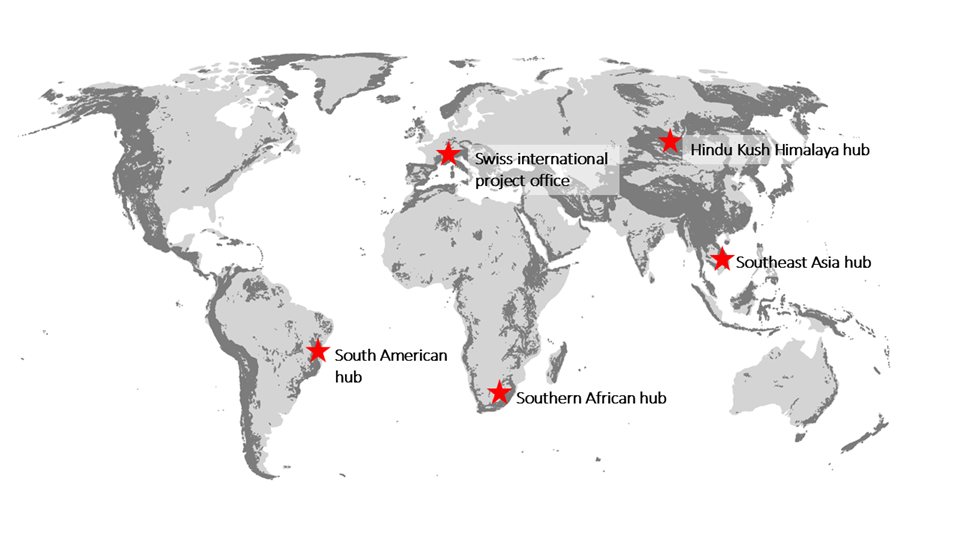Regional hubs
The regional hubs are GMBA regional branches and connect researchers contributing to regional and cross-cutting research. In collaboration with the international project office, the hubs contribute to strengthening GMBA's vision and objectives, achieving a broader geographic coverage and better inclusiveness, mobilizing and supporting novel segments of local communities and catalysing the development of data and knowledge products that are relevant at regional scale and in regional contexts. The regional hubs are self organized and develop an own product and activity portfolio in line with GMBA's objectives and with support from the international project office. Their lead is under the responsibility of individual SSC members.
In the context of the global assessment of mountain biodiversity recently initiated by GMBA, the regional hubs play an important role in mobilizing experts and actors for knowledge sharing and co-creation as well as for knowledge dissemination and uptake. Local and regional engagement with the scientific community is key for accessing knowledge as well as for capacity building and the regional hubs are essential in catalysing and facilitating this process. In a perspective of mutual benefit sharing, the regional hubs are also to benefit from the resources collected during the time of this assessment, including through the use of the assessment knowledge base and from opportunities created through the assessment, including in terms joint funding applications.
Currently, four regional hubs have been established: one for Africa at the Afromontane Research Unit of the University of the Free State in South Africa under the leadership of Prof. Peter Taylor, one for South America at the University of Campinas, Brazil, under the leadership of Prof. Laszlo Nagy, one for the Hindu Kush Himalaya at ICIMOD in Nepal, under the leadership of Sunita Chaudhary, and one for Southeast Asia at the Center for Development and the Environment country office in Laos.

